All the latest news, media appearances and achievements from those involved with UCL Anthropocene.
January 2024
Call for Papers: Socialist Anthropocene in the Visual Arts Conference this May. Find out more about the CfP and how to submit here. Deadline: Feb 11th, 2024
Animal Scales: UCL Anthropocene and the Centre for Critical Global Change, Goldsmiths, have launched a new seminar series running from February to July this year. More information and links to all six events can be found here.
December 2023
UCL Anthropocene co-convenor Professor John Sabapathy delivered his inagurual lecture on November 29th, 2023, entitled 'Goodbye Cockaigne! Working, eating, & laughing in the Anthropocene, 1250-2023'. You can watch a recording of the lecture and read a reprot on the lecture here, written by History PhD student Hugo Raine.
November 2023
UCL Anthropocene co-convenor Professor John Sabapathy will deliver his inaugural lecture Goodbye Cockaigne! Working, eating and laughing in the Anthropocene, 1250-2023 on Nov 29th, 6:30pm, Gustave Tuck Lecture Theatre. More information here.
October 2023
International Booker Prize winning author Georgi Gospodinov and his translator Angela Rodel will join UCL SSEES’s Uilleam Blacker, who was a member of the judging panel for the Prize, for a conversation about Georgi’s latest, multi-award-winning novel, Time Shelter, a brilliant, satirical look at memory, nostalgia and populist politics. More information here. (Part of the Writers of the Anthropocene series). Dec 1st, 6:30pm, Gustave Tuck Lecture Theatre
September 2023
The UCL Warning Research Centre (Science and Technology Studies) hosted the ‘Creating Effective Warnings For All Conference’ from September 11-13th. Read more about the conference here.
July 2023
Spot marking the beginning of the Anthropocene identified by UCL researchers. UCL Anthropocene member and Secretary of the Anthropocene Working Group, Dr Simon Turner (UCL Geography) said: “The sediments found at the bottom of Crawford Lake provide an exquisite record of recent environmental change over the last millennium. Seasonal changes in water chemistry and ecology have created annual layers that can be sampled for multiple markers of historical human activity." Read more here
A special issue of Medical Anthropology Theory on ‘Embodied Inequalities of the Anthropocene’ has been published, edited by the Embodied Inequalities of the Anthropocene group. The group is a collaboration between UCL, UFRGS Brazil, and CIESAS Mexico. UCL Anthropocene co-convenor Professor Sahra Gibbon, member Dr Jennie Gamlin and research fellow Dr Maria-Paula Prates, who are part of this collaboration, have co-edited this issue alongside colleagues in Brazil and Mexico. Read an introduction to the special issue here
Professor Marie-Annick Moreau and UCL Anthropology launch new podcast Hearing above the roar, exploring why major energy infrastructure projects in Africa are on the rise and how rural communities in Tanzania and Kenya can—and are—mobilising to protect their waters, lands and ways of life. Listen to the podcast here (includes transcripts in English and Swahili, as well as links to further resources)
June 2023
Professor David Wengrow (UCL Archaeology), who has been named the 2023 Albertus Magnus Professor at the University of Cologne, one of the university’s highest academic honours, for his work on comparative archaeology around the world. Professor Wengrow spoke last year with Amitav Ghosh, as part of an event with UCL Anthropocene. You can see the recording here
March 2023
Blog post: Creating synergies for collaboration at Anthropocene's Chemical Exposures workshop. The UCL Anthropocene Chemical Exposures reading group held their second hybrid workshop event in London in March, with a visit from Professor Michelle Murphy (University of Toronto). Read here for more on what was discussed
November 2022
'COP27 will be remembered as a failure – here’s what went wrong' - Professor Mark Maslin (Geography), Professor Priti Parikh (Bartlett School of Sustainable Construction), Professor Richard Taylor (Geography) and Dr Simon Chin-Yee (Political Science) in The Conversation
Cop27: UCL Anthropocene members and colleagues across SHS share their insights and reflections from the conference. Read contributions from Professor Lisa Vanhala (Political Science), Professor Mark Maslin (Geography), Professor Rodney Harrison (Archaeology) and Dr Fergus Green (Political Science) and more here.
A new study is published in Nature, entitled Hydroclimatic vulnerability of peat carbon in the central Congo Basin. Professor Simon Lewis (UCL Geography) senior author of this study, spoke to the Guardian, saying: “We know today that these peatlands are very close to that tipping point where they could release billions of tonnes of carbon to the atmosphere...We don’t know exactly how close but we do know that for the last couple of decades, droughts have been getting longer in the centre of the Congo basin. Our study brings a brutal warning from the past. This is an important message for world leaders gathering at the Cop27 climate talks.”
October 2022
UCL Anthropocene Honorary Research Fellow Gaia Vince reviews The Climate Book by Greta Thunberg: " Greta Thunberg is already assured her place in history as the Jeanne d’Arc (or Cassandra) of our time. She’s been heroically battling the forces of climate inaction and denial since she stepped on to the global stage as a shy 15-year-old schoolkid “striking for the climate”. Anything written or orchestrated by her – like this appealingly produced anthology of essays – stands an excellent chance...This book is superb at explaining the urgency and importance of preventing climate change, but despite its heft it stops too soon."
September 2022
Octagon Gallery exhibition Objects of the Misanthropocene opens in the Wilkins Building, running from 26 September 2022 to 6 February 2023. A series of events will run alongside the exhibition, more details of which can be found here.
May 2022
The Dawn of Everything: A New History of Humanity co-authored by David Wengrow (UCL Institute of Archaeology), with the late David Graeber, has been shortlisted for The Orwell Prize for Political Writing 2022. David Wengrow will discuss ideas from his book in two special events with UCL Anthropocene and the IAS on June 15 (panel discussion with Sonya Atalay, Luiz Costa, Paul Gilroy, Benedetta Rossi, and David Wengrow, chaired by Alpa Shah) and June 16 (a conversation with Amitav Ghosh and David Wengrow)
April 2022
The Chemical Exposures workshop will take place in June, with a keynote opening lecture from Michelle Murphy (University of Toronto) on Thursday June 9th.
March 2022
Call for papers: UCL Anthropocene, together with SHS Health, Mind and Society, is requesting contributions to the Chemical Exposures workshop in June. Please see here for more information on how to propose a paper, conversation or interactive session. Deadline: April 22nd, 2022
October 2021
UCL Anthropocene launches new COP26 blog series, with members across History, Archaeology, Geography, Science and Technology Studies, Anthropology, Art and more answer the question of: 'What should be happening at COP26 and beyond?'
UCL Professor of Comparative Archaeology David Wengrow, co-author of The Dawn of Everything with David Graeber, writes 'Humanity is not trapped in a deadly game with the Earth – there are ways out' in the Observer as COP26 gets underway
August 2021
UCL Geography's Prof. Simon Lewis writes Guardian column 'Let’s say it without flinching: the fossil fuel industry is destroying our future' in response to IPCC climate report
June 2021
UCL’s Archaeology South-East launches SHS Dean’s Fund supported project PalaeoLondon, to bring the deep past of London alive for school children and the wider communities
Prof. Andrew Barry co-authors 'A new public health order: engineering vaccine equity' in KCL's series of essays on how we can Build Back Better Together
UCL Anthropocene, the Sarah Parker Remond Centre, Institute of Advanced studies and Department of Global Health and Social Medicine, Kings, will run a two-day workshop on Engineering Global Vaccine Equity
May 2021
Edward Christie (History of Art) reflects on the Cultural Ecology series as it comes to a close after eight events
Dr Simon Turner (Geography) appears on the Guardian podcast to discuss: ‘Have we entered the Anthropocene – a new epoch in Earth’s history?’
Prof. Mark Maslin (Geography) publishes How to Save Our Planet: The Facts
April 2021
Dr Sahra Gibbon (Anthropology) and Dr Jennie Gamlin (Institute for Global Health) granted Wellcome Trust Discretionary Award for their project on Embodied Inequalities of the Anthropocene
Prof Dorian Fuller (Archaeology) publishes 'People have shaped most of terrestrial nature for at least 12,000 years' in PNAS
October 2020
Dr Hannah Knox publishes Thinking Like A Climate: Governing a City in Times of Environmental Change
September 2020
Artist Simon Faithfull launches new exhibition 'Memories From The Future' at Galerie Polaris in Paris.
August 2020
The online Objects of the Misanthropocene exhibition is now live with Dean Sully on the Curatorial Team.
July 2020
Prof. Andrew Barry publishes 'Unsustainable transition? Hydropower and the post-Covid recovery in Georgia' in openDemocracy
May 2020
Dr. Jerome Lewis publishes 'How "Sustainable" Development Ravaged the Congo Basin' in Scientific American journal.
UCL Medical Anthropology launches 'Co-existing with Covid-19: Moving into the Post-Pandemic World with the Social Sciences' blog series.
April 2020
UCL launches 'Coronavirus: The Whole Story' podcast series.
Institute of Advanced Studies launches 'Life in the Time of Coronavirus' podcast series.
Prof. Katherine Homewood publishes 'Women, Wellbeing and Wildlife Management Areas' in the Journal of Peasant Studies.
March 2020
UCL Medical Anthropology launches 'Consciously Quarantined' blog series.
January 2020
Dr. Colin Sterling publishes 'Critical Heritage and the Posthumanities: Problems and Prospects' in International Journal of Heritage Studies.
The images below feature artworks made by UCL artists engaging with the Anthropocene. Click on the artist for further information.
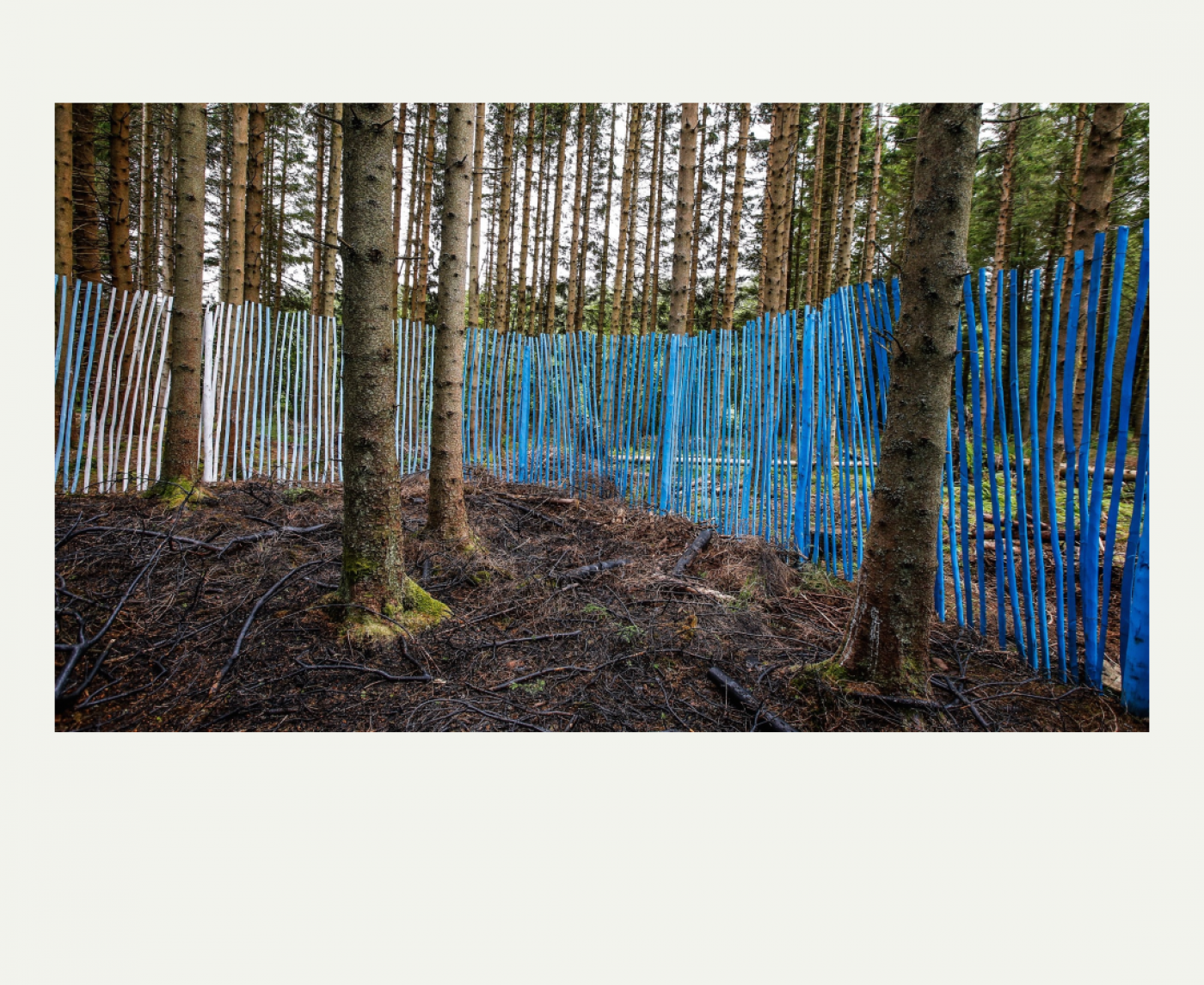
Fiona Curran, The Grass Seemed Darker Than Ever (detail), 2016. Commissioned by Kielder Art and Architecture for Kielder Forest, Northumberland.
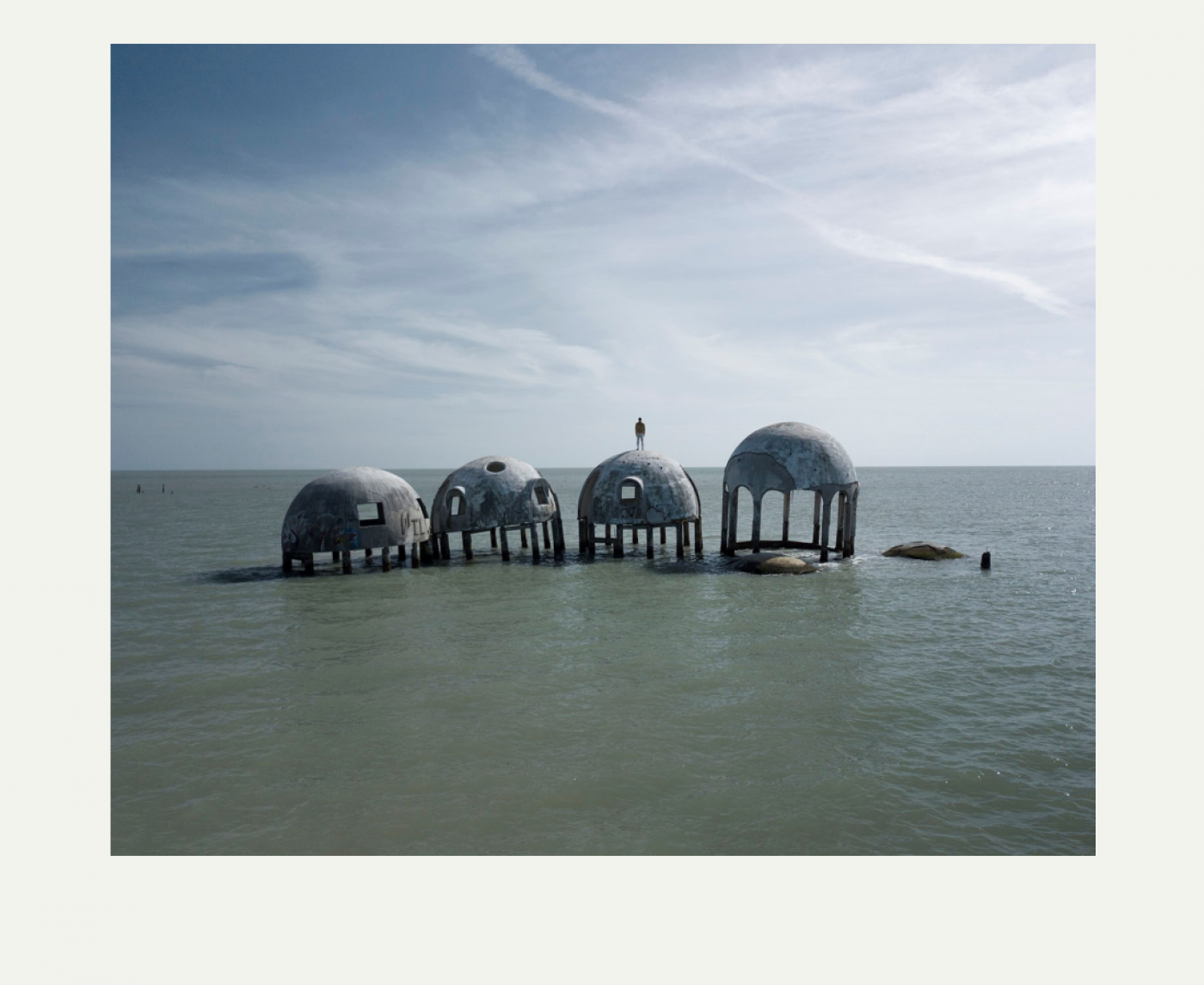
Simon Faithfull, Still from: 'Re-enactment for a Future Scenario #2: Cape Romano', 2019, HD video, 6min loop.
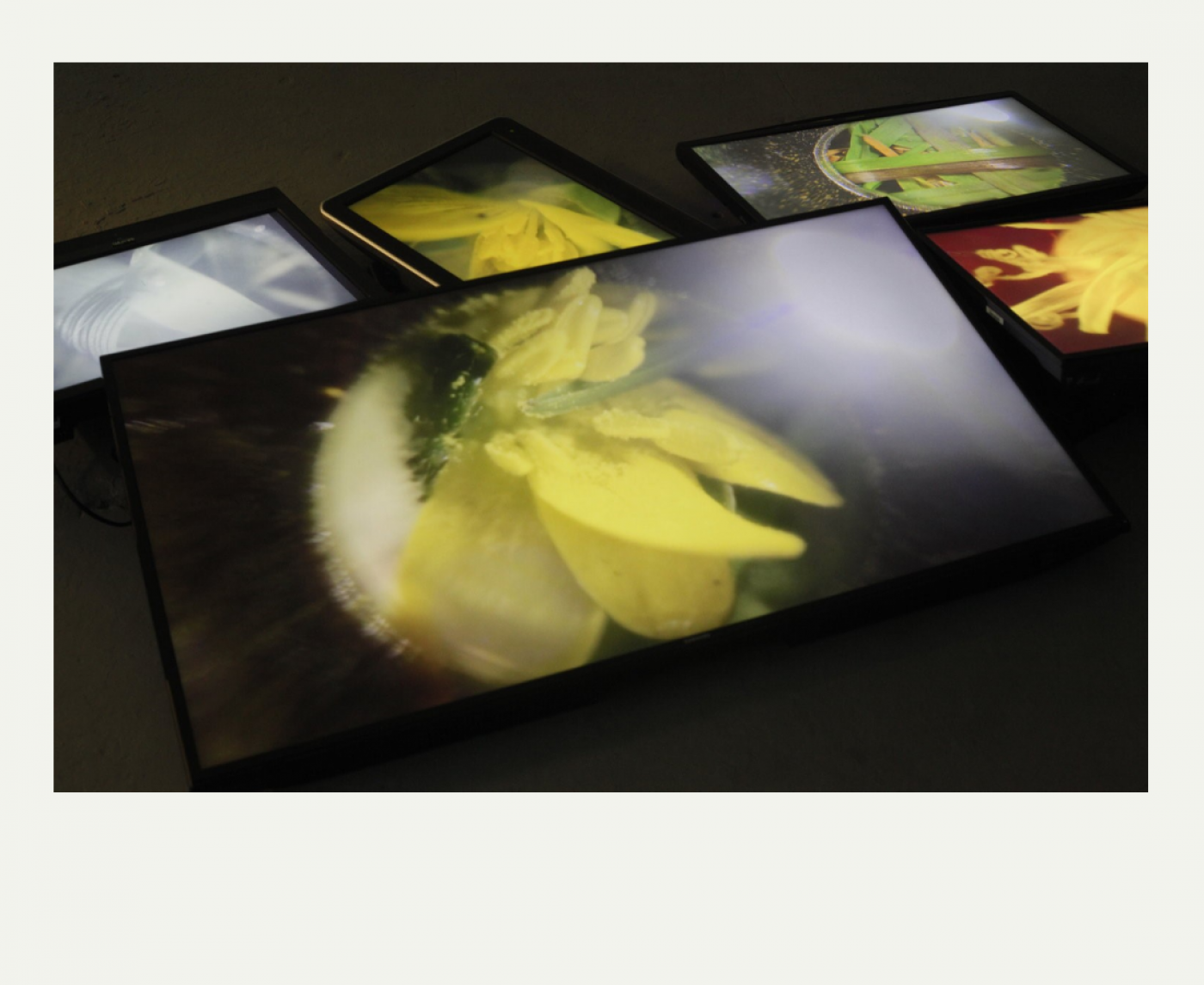
Rhona Eve Clews, If I eat you, will we both still be OK? (Plant), from the series Odes (PART OF A LARGER QUEST), 2019, multi-screen video installation, Slade School of Fine Art MA/MFA Degree show. Documentation by Holly Buckle.
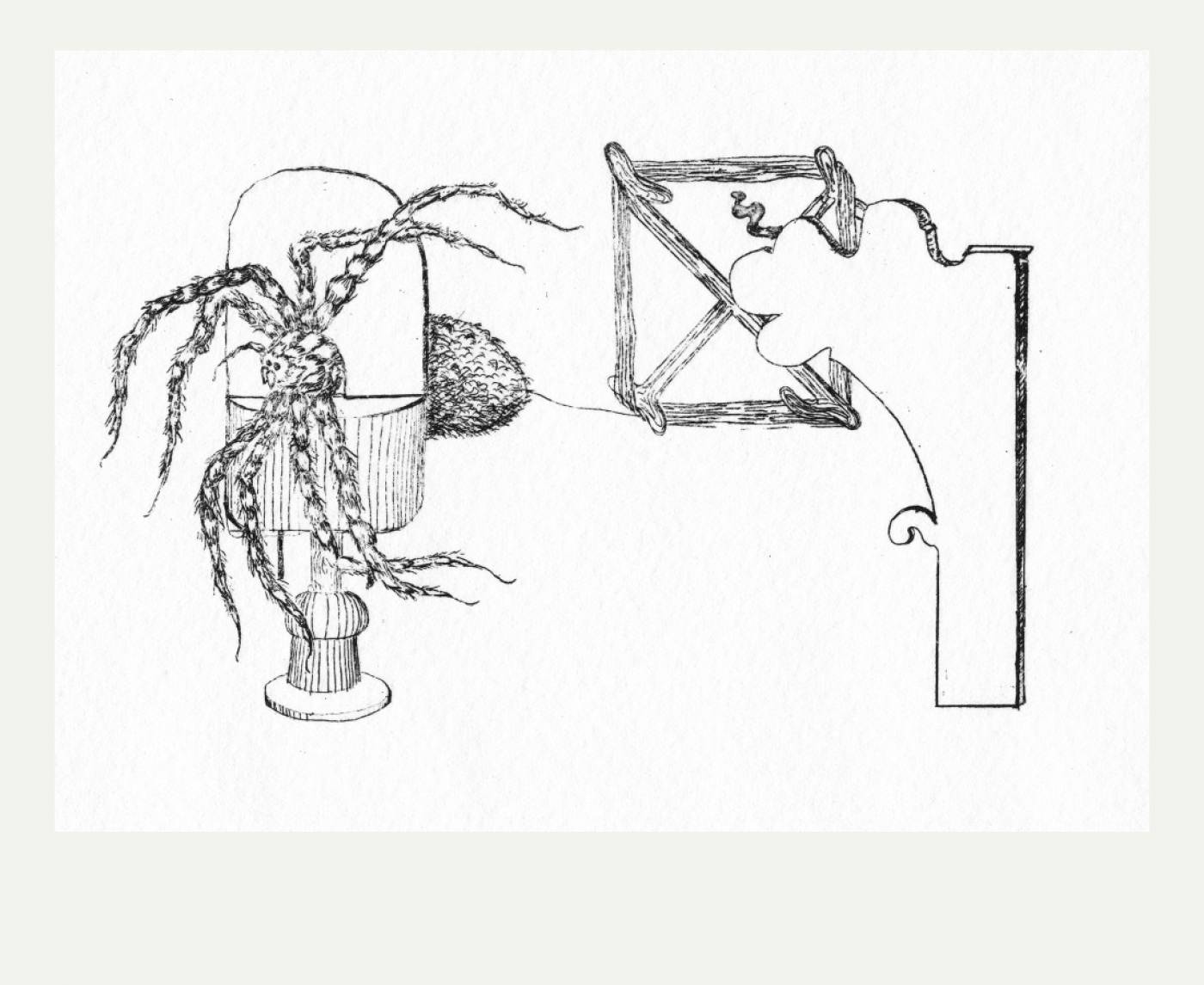
Eleanor Morgan, Spider Spinning Machine 1810, 2008, etching.
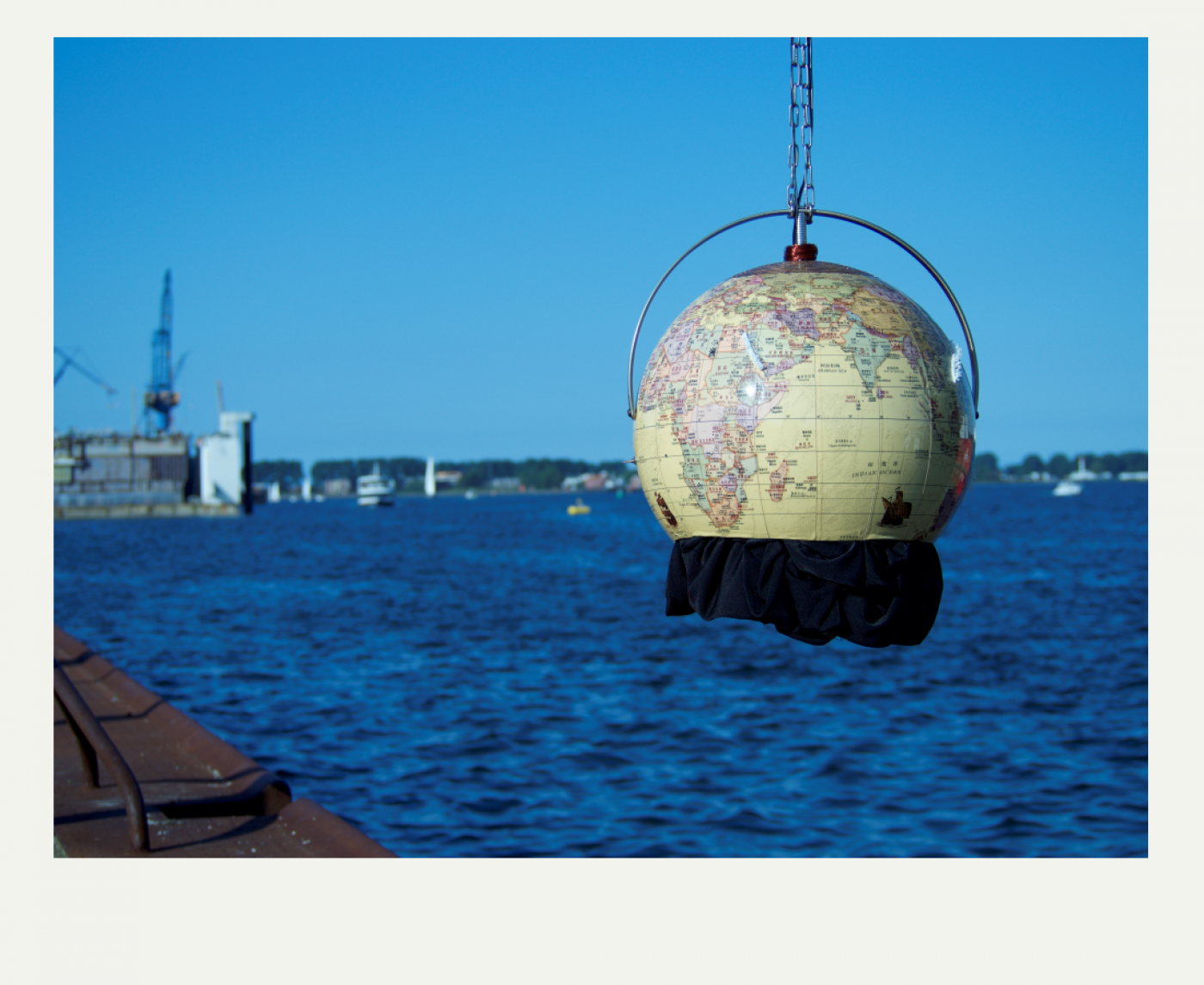
Kat Austen, Coral Empathy Device, 2017, CC-BY-SA 4.0. Video documentation: https://www.katausten.com/portfolio/the-coral-empathy-device/.
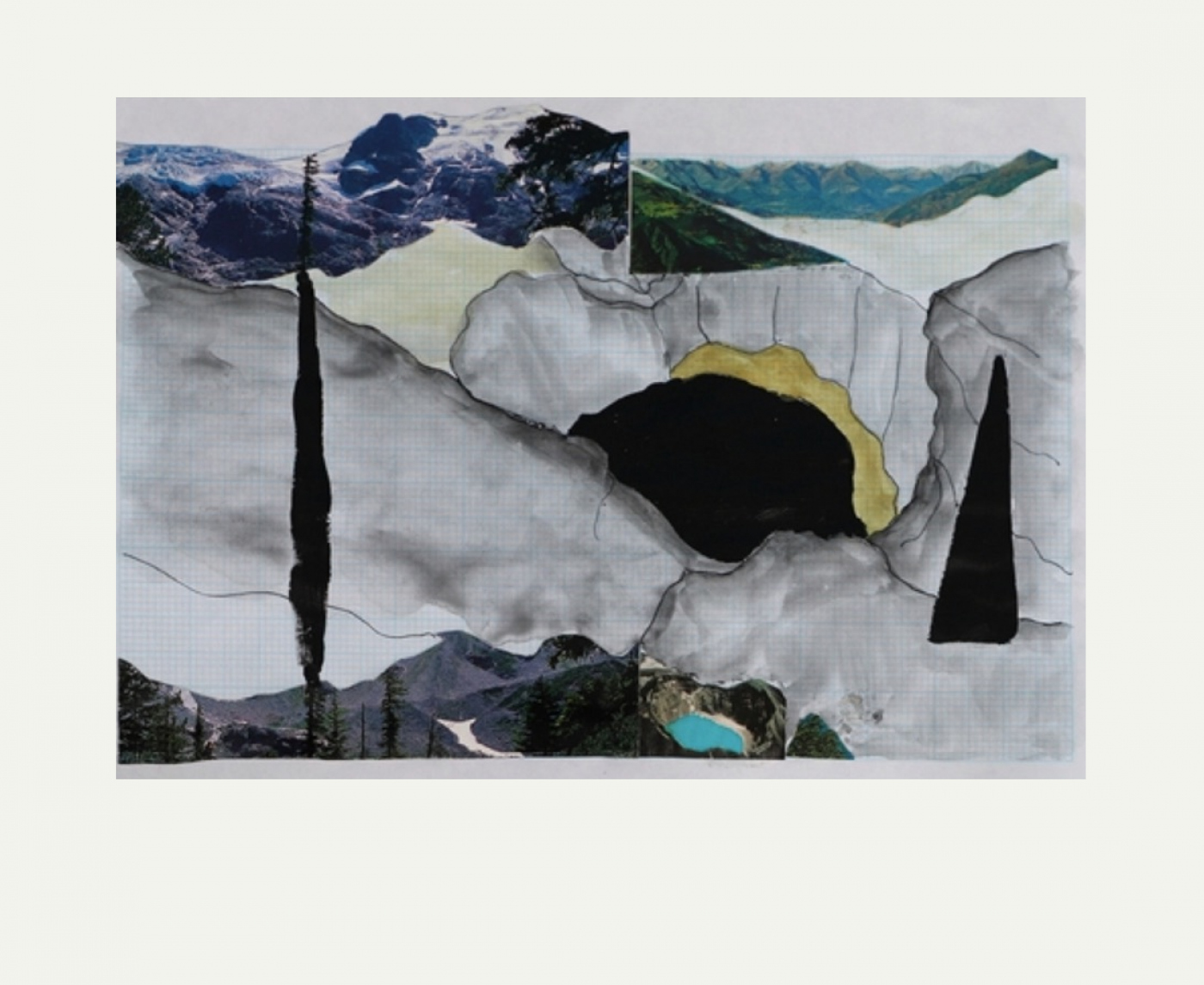
Henrietta Simson, Sketch for the Anthropocene, 2015, 21 x 29 cm, collage on graph paper.
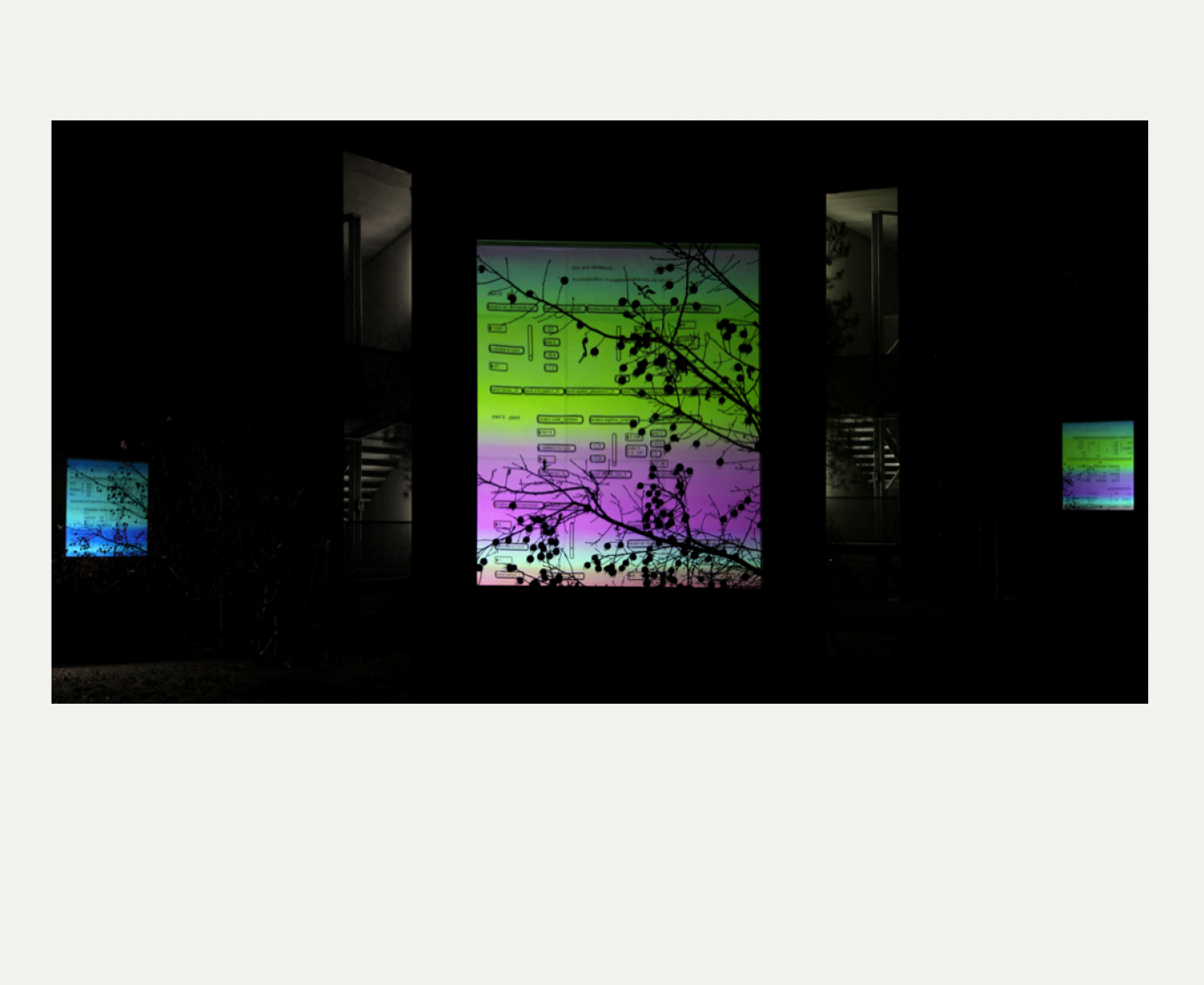
Christina Della Giustina, You Are Variations, Version 01 and 02 - Visp vs Vordemwald, audio-video installation, ca. 2 x (12 x 4 x 4 m), Federal Institute for Forest, Snow and Landscape Research WSL, CH, December 2011. Video documentation: https://vimeo.com/313811835; https://vimeo.com/265145196.
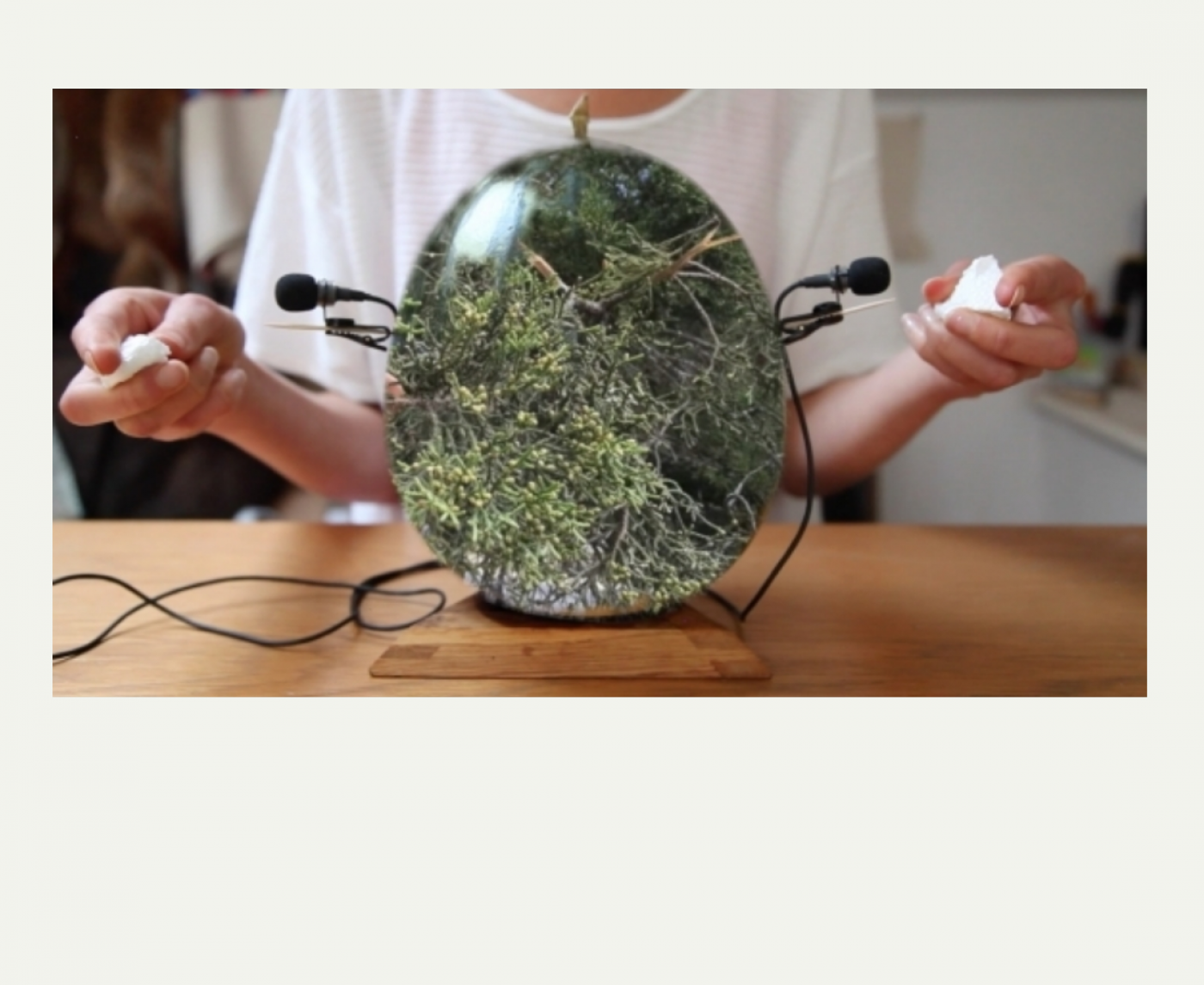
Hermione Spriggs and Laura Cooper, Concert of a Lure, 2017.
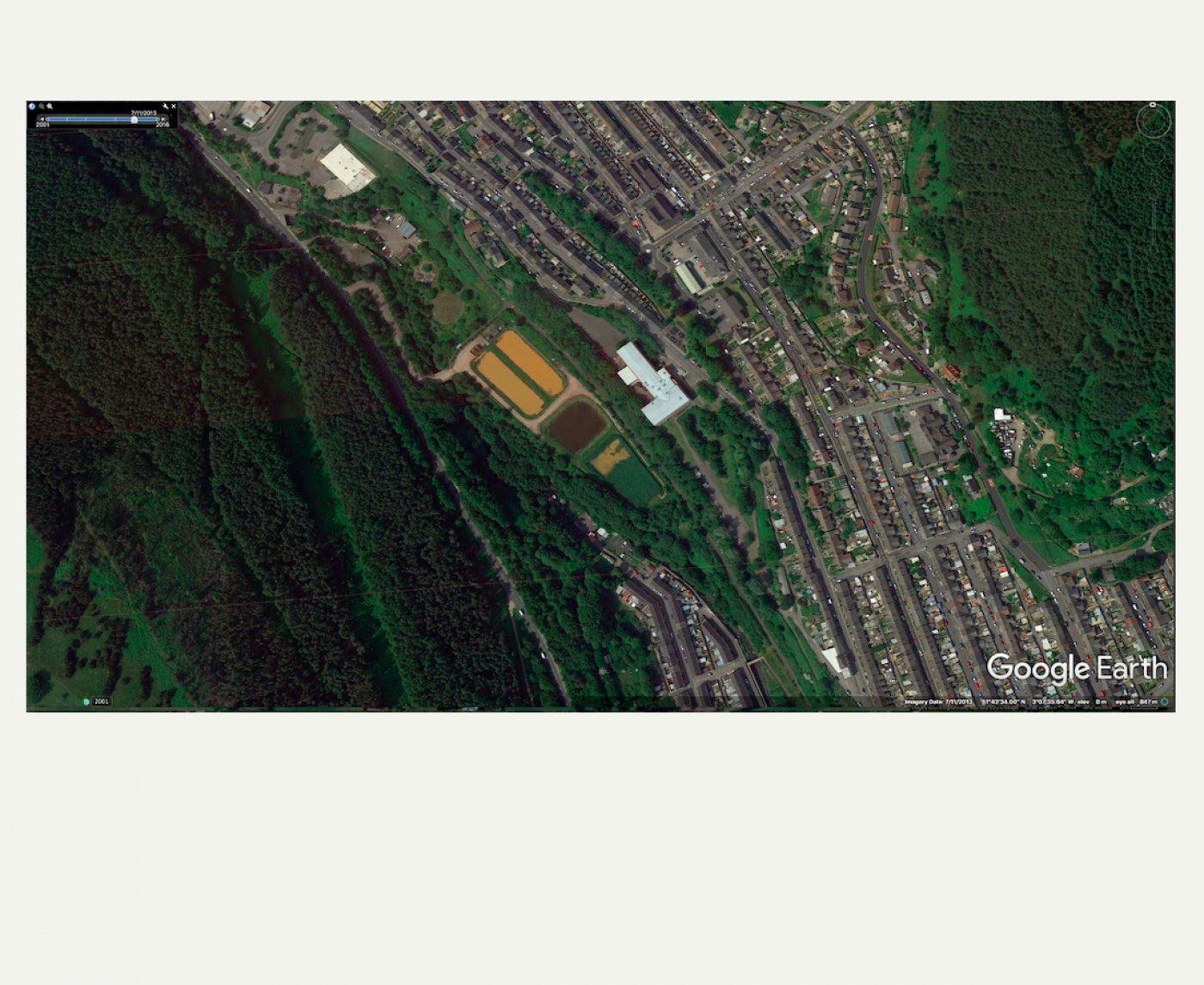
Onya McCausland, sixbells_ScreenShot_1 Six Bells Mine Water Treatment Scheme 51°43 33.56 N 3°07 58.63 W 847m.
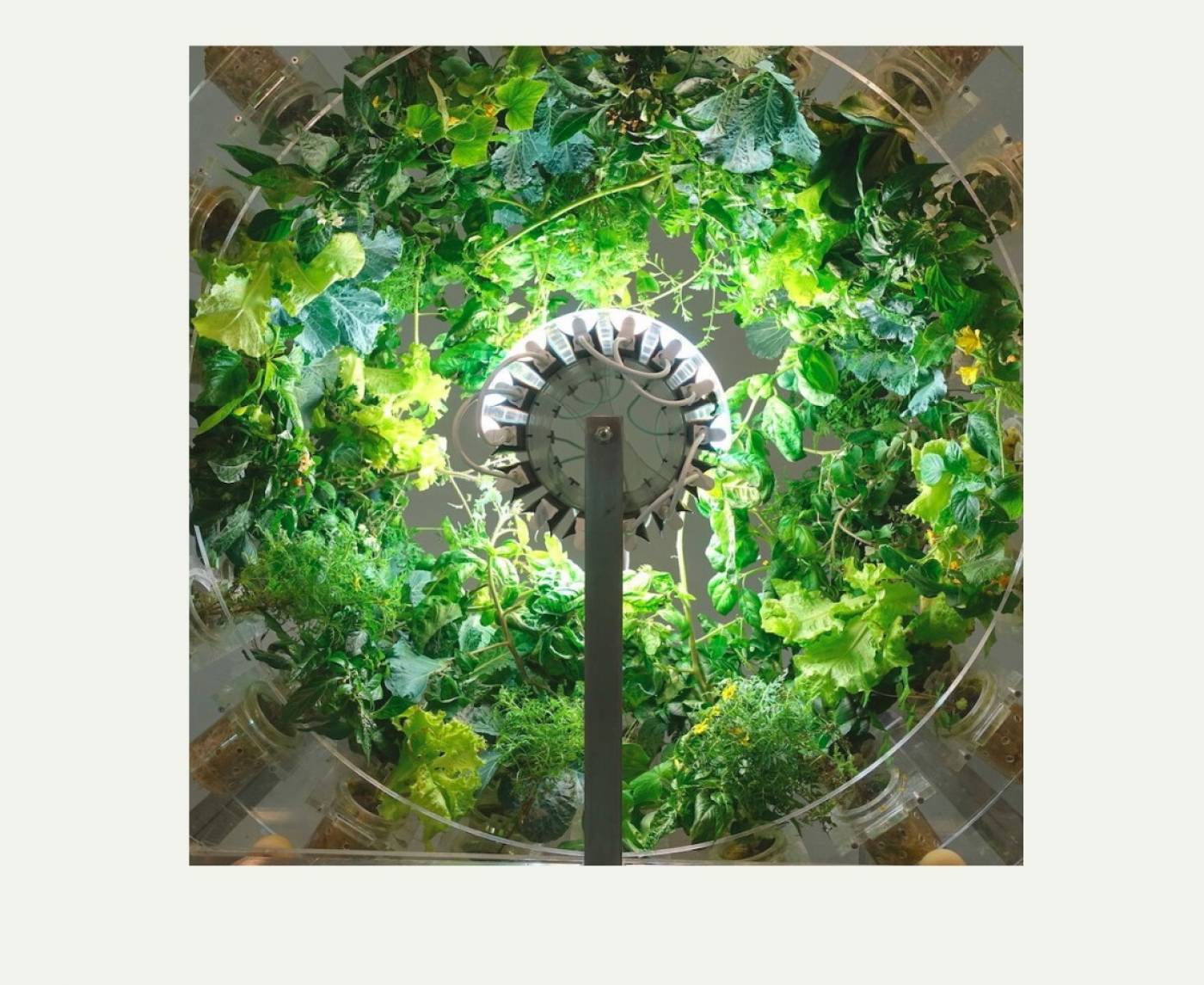
Nick Laessing, Plant Orbiter, 2017.
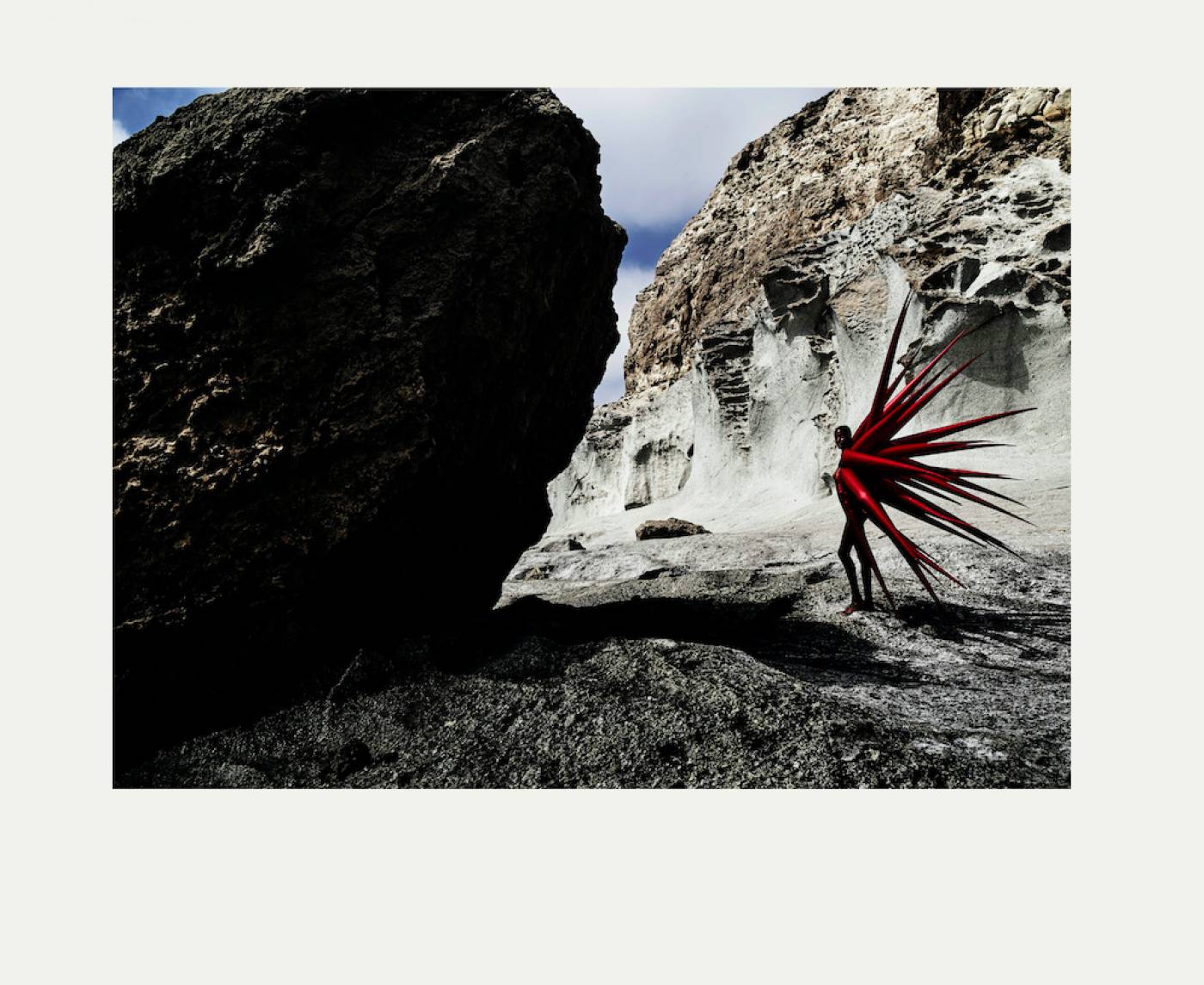
Ram Shergill, Anthropogenic Echinoidea Sympoiesis, 2019, Chromogenic Print, Leica Gallery Los Angeles in collaboration with Jack Irving and Daen Palma Huse.
 Close
Close

